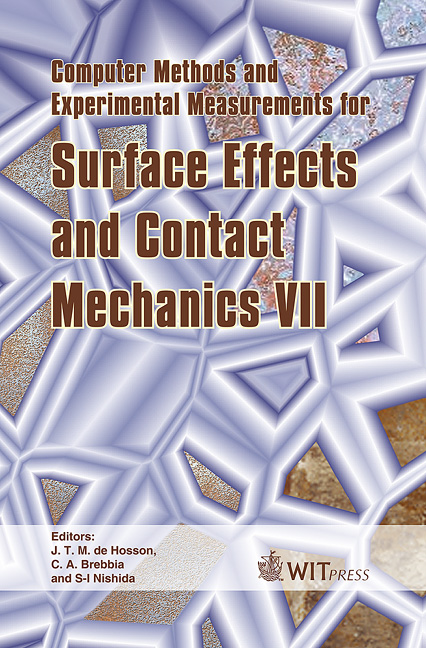Improvement Of Corrosion Resistance And Bio Compatibility Of Ni-Ti Shape Memory Alloy By Various Surface Modifications
Price
Free (open access)
Transaction
Volume
49
Pages
9
Published
2005
Size
413 kb
Paper DOI
10.2495/SECM050011
Copyright
WIT Press
Author(s)
Y. Kimura
Abstract
Nickel-titanium shape memory alloy (Ni-Ti alloy) has unique mechanical properties such as shape memory effect and super elasticity along with good wear and corrosion resistances. For this reason Ni-Ti alloy is expected to be used as implant material in the biomedical field. However, the biocompatibility of the Ni-Ti alloy is not fully examined. The purpose of this research is to evaluate in vitro cytocompatibility and to try to improve corrosion resistance for Ni-Ti alloy by various surface modifications. Ni-Ti alloy showed good cytocompatibility compared with that of a Ti-6Al-4V alloy, judging from the small amount of hIL-1β and LDH generations. Biocompatibility of the Ni-Ti alloy is superior compared with pure nickel. Also, it was made clear that the biocompatibility of the Ni-Ti alloy showed almost the same level as that of stainless steel, which gave a lot of actual results as a biomaterial until now. Therefore, it was understood that there is no problem in the biocompatibility of the Ni-Ti alloy for application as a biomaterial. Moreover, corrosion resistance of in air oxidized Ni-Ti alloy was recognized to be greatly improved. Keywords: nickel-titanium shape memory alloy, cytocompatibility, bio-compatibility, biomaterial. 1 Introduction Ni-Ti alloy shows unique mechanical properties namely shape memory effect and super elasticity [1,2] along with good wear resistance and good corrosion resistance [3]. It provides a possibility for making self-locking, self-expanding and self-compressing implant. For this reason Ni-Ti alloy is expected to use as
Keywords
nickel-titanium shape memory alloy, cytocompatibility, bio-compatibility, biomaterial.





